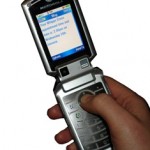 Payroll cards received a lot of press over the summer with the lawsuit filed against a McDonald’s franchisee for giving its employees their pay on this type of plastic payment card. The focus has been on the fees, in which case a recent blog by Jennifer Rusie of Ogletree Deakins, lays out what employers need to consider when thinking about or using payroll cards to pay their employees.
Payroll cards received a lot of press over the summer with the lawsuit filed against a McDonald’s franchisee for giving its employees their pay on this type of plastic payment card. The focus has been on the fees, in which case a recent blog by Jennifer Rusie of Ogletree Deakins, lays out what employers need to consider when thinking about or using payroll cards to pay their employees.
Apart from the various state labor laws which dictate whether or not an employer can provide pay using payroll cards and thereby warning employers not to violate these laws by pushing payroll cards, there is another view on payroll cards that bears discussion and may put even more control back in the hands of the employees. GPRs, or general purpose reloadable prepaid cards, are currently under review by the CFPB and will likely extend those same Reg E payroll requirements to GPRs soon–which means in the eyes of Reg E, payroll and GPRs will look the same.
But, will this be the case for the user, in this case the employee? What will be the ripple effect to the payroll card industry? It seems that GPRs are far more adaptable and usable for consumers , whether unbanked, underbanked, fully banked, than payroll cards today. A GPR holder is able to arrange to have not only their paycheck, but also other monies, including government issued benefits (if federal, provided the card meets DOT requirements) into the account. These cards also allow other checks to be deposited, in some cases, offer remote deposit capture. Basically, GPR card accounts offer the same functions as a checking account, and many are going beyond this with the adoption of convenient technologies. Payroll cards, at least from my most recent informal survey, do not offer the same ability to deposit monies from sources apart from the employer, and may be limited to use only with an existing employer.
With these considerations, it seems as though the CFPB’s recent bulletin warning against the exclusive use of payroll cards may be rendered moot, or at least less significant, as more consumers (when Reg E is extended to GPRs) will see the value in choosing their own prepaid card to obtain their pay.




